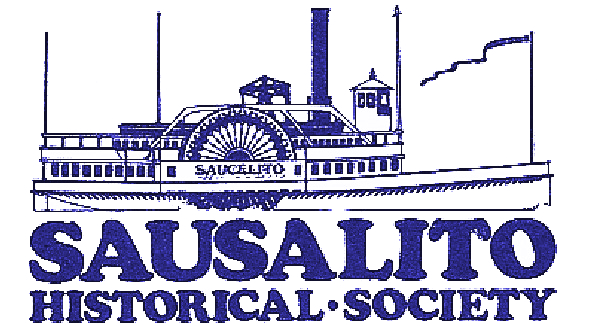By Walt Whitman
The following is excerpted from an essay in a December, 1885 issue of the Sausalito News, credited to Walt Whitman:
Walt Whitman, looking at home on the range. Courtesy photograph
Viewed freely, the English language is the accretion and growth of every dialect, race and range of time, and is the culling and composition of all.
What a relief most people have in speaking of a man not by his true and formal name, with a "Mister" to it, but, by some old or homely appellative. The propensity to approach a meaning not directly and squarely, but by circuitous styles of expression seems indeed a born quality of the common people everywhere, evidenced by nicknames and the inveterate determination of the masses to bestow substitutes, sometimes ridiculous, sometimes very apt. Always among the soldiers during the secession war, one heard of "Little Mac" (General McClellan), or of "Uncle Hilly" (General Sherman). "The old man" was, of course, very common. Among the rank and file of both armies it was very general to speak of the different States they came from by their slang names. Those from Maine were called Foxes; New Hampshire, Granite Boys; Massachusetts, Bay Staters; Vermont, Green Mountain Boys; Rhode Island, Gun Flints; Connecticut, Wooden Nutmegs; New York, Knickerbockers; New Jersey, Clam Catchers; Pennsylvania, Logher Heads; Delaware, Muskrats; Maryland, Clam Thumpers; Virginia, Beagles; North Carolina, Tar Boilers; South Carolina, Weasels; Georgia, Buzzards; Louisiana, Creoles; Alabama, Lizzards; Kentucky, Corn Crackers; Ohio, Buckeyes; Michigan, Wolverines; Indiana, Hoosiers; Illinois, Suckers; Missouri, Pukes; Mississippi, Tadpoles; Florida, Fly Up the Creeks; Wisconsin, Badgers; lowa, Hawkeyes; Oregon, Hard Cases. Indeed, I am not sure but slang names have more than once made Presidents. "Old Hickory" (General Jackson) is one case in point. "Tippecanoe and Tyler too," another.
The same rule will be found in the people's conversations everywhere. I heard this among the men of the city horse-cars, where the conductor is often called a "snatcher" (i.e. because his characteristic duty is to constantly pull or snatch the bell-strap, to stop or go on). Two young fellows are having a friendly talk, amid which, says first conductor: “What did you do before you was a snatcher?" Answer of second conductor: "Nailed." (Translation of second conductor: "I worked as carpenter.") "What is a boom?" says one editor to another. "Esteemed contemporary," says the other, "a boom is a bulge." "Barefoot whisky" is the Tennessee name for the undiluted stimulant. In the slang of the New York common restaurant waiters, a plate of ham and beans is known as "stars and stripes," codfish balls as "sleeve-buttons," and hash as "mystery."
The Western States of the Union are, however, as may be supposed, the special areas of slang, not only in conversation, but in names of localities, towns, rivers, etc. A late Oregon traveler says: "On your way to Olympia by rail you cross a river called the Shookum Chuck; your train stops at places named Newaukum, Tumwater and Toutle; and if you seek further you will hear of whole counties labeled Wahkiakum, or Snohomish, or Kitsar, or Klikatat: and Cowlitz, Hookiiim and Nenolelops greet and offend you. They complain in Olympia that Washington Territory gets but little immigration; but what wonder? What man, havjng the whole American continent to choose from, would willingly date his letters from the county of Snohomish, or bring up his children in the city of Nenolelops. The village of Tumwater is, as I am ready to bear witness, very pretty indeed; but surely an emigrant would think twice before he established himself either there or at Toutle. Seattle is sufficiently barbarous, Stelicoom is no better, and I suspect that the Northern Pacific Railroad terminus has been fixed at Tacoma, because it is one of the few places on Puget Sound whose name does not inspire horror."
The Western States of the Union are, however, as may be supposed, the special areas of slang, not only in conversation, but in names of localities, towns, rivers, etc. A late Oregon traveler says: "On your way to Olympia by rail you cross a river called the Shookum Chuck; your train stops at places named Newaukum, Tumwater and Toutle; and if you seek further you will hear of whole counties labeled Wahkiakum, or Snohomish, or Kitsar, or Klikatat: and Cowlitz, Hookiiim and Nenolelops greet and offend you. They complain in Olympia that Washington Territory gets but little immigration; but what wonder? What man, havjng the whole American continent to choose from, would willingly date his letters from the county of Snohomish, or bring up his children in the city of Nenolelops. The village of Tumwater is, as I am ready to bear witness, very pretty indeed; but surely an emigrant would think twice before he established himself either there or at Toutle. Seattle is sufficiently barbarous, Stelicoom is no better, and I suspect that the Northern Pacific Railroad terminus has been fixed at Tacoma, because it is one of the few places on Puget Sound whose name does not inspire horror."
Then a Nevada paper chronicles the departure of a mining party from Reno: “The toughest set of roosters that ever shook the dust of any town left Reno yesterday for the new mining district of Cornucopia. They came here from Virginia. Among the crowd were four New York cockfighters, two Chicago murderers, three Baltimore bruisers, one Philadelphia prize-fighter, four San Francisco hoodlums, three Virginia beats, two Union Pacific roughs, and twocheck guerrillas." Among the Far West newspapers have been, or are, the Fairplay (Col.) Flume; the Solid Muldoon, of Ouray; the Tombstone Epitaph, of Nevada; the Jimplecute of Texas, and the Bazoo, of Missouri. Shirttail Bend, Whisky Flat, Puppytown, WiId Yankee Ranch, Squaw Flat, Rawhide Ranch, Loafer's Ravine, Squitch Gulch. Toenail Lake are a few of the names of places in Butte County, Cal.
Oklahoma is proposed in Congress for the name of one of our new territories. Hog-eye, Lick-skillet, Rake-pocket, and Steal-easy are the names of some Texan towns.

